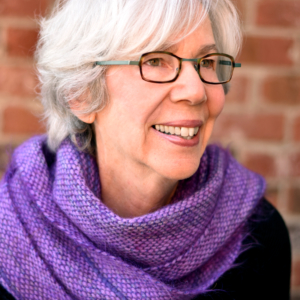Then and Now
by Judy Goldman
 Maybe the hardest — probably the most important — thing to learn about writing memoir:
Maybe the hardest — probably the most important — thing to learn about writing memoir:
The then and now of it.
When you’re going through an experience, you’re pretty innocent. You might get slivered glimpses of insight, but mostly you’re just living your life day-to-day.
Then, years pass and you decide to write a memoir. You’re more experienced now, maybe even more mature. At the very least, you have the advantage of time. You lean back, stroke your chin, understand the significance — even start to be hardened to the emotional impact – of what you want to tell about. That’s when you move gracefully from the actual memory, to the insights you had then, to truthful questioning, to the insights you have now.
You’re seeking a balance between the then and the now, through a braiding of the two, a jumping back and forth, or a steady progression. Regardless of the structure you choose for your memoir, your mission is to show your own growth and change (or your lack of growth and change).
In my memoir, Child, I write about Mattie Culp, the Black woman who, in 1944, came to work for my family in Rock Hill, South Carolina. Mattie did not have her own home; she lived with us. She mopped and dusted, washed and ironed, cooked — and helped raise me. In the beginning, we shared a double bed. My memoir examines the unconscionable scaffolding on which our relationship was built and the deep love.
I also look at the relationship between Mattie and my mother. They always said they were best friends. How many times did I hear them talking, whispering, crying, laughing, the mingling of their voices? How many times did I see them touch, hug, that magnetic force between them?
That is the child Judy’s memory. It’s honest. Innocent. Naïve.
Now that I’m an adult, I see the relationship between Mattie and my mother as anything but equal. Mother’s money bought her a housekeeper, laundress, cook, and babysitter. You could easily say this made their friendship less true than financed. You could say their friendship was really just mild paternalism. Mother called Mattie Mattie. Mattie called my mother, Mrs. Peggy.
Both perspectives – then and now – are important in memoir. The childlike view from then. And the more incisive view you have now. Heck, both perspectives are important in life, too.
Here’s adult Judy merging these two perspectives in Child:
Even though the arrangement between Mattie and my mother was rooted in discrimination, they loved each other indiscriminately.
When you write your memoir, be sure to do some merging.
Everything Judy Goldman Knows About Memoir
In this workshop Judy will cram every tip she wishes she had known before she started writing personal essays and memoir. She’ll discuss beginnings, voice, structure, descriptive details, reflection, scene vs. summary, and tension. She’ll even talk about a writer’s self-doubt and how she keeps going despite those little voices that say, “You can’t do it. You’re not a writer.” For beginners and experienced writers alike.
Tuesday, May 2 | 6:00 – 8:00 pm | Charlotte Lit @ hygge Belmont | Members $45, Non-Members $60. Register
Judy Goldman is the award-winning author of seven books—three memoirs, two novels, and two collections of poetry. Her new memoir, Child, was named a Katie Couric Media Must-Read Book for 2022. Her recent memoir, Together: A Memoir of a Marriage and a Medical Mishap, was named one of the best books of 2019 by Real Simple magazine and received a starred review from Library Journal. Her work has appeared in USA Today, The Washington Post, The Charlotte Observer, Real Simple, LitHub, and many literary journals and anthologies.
